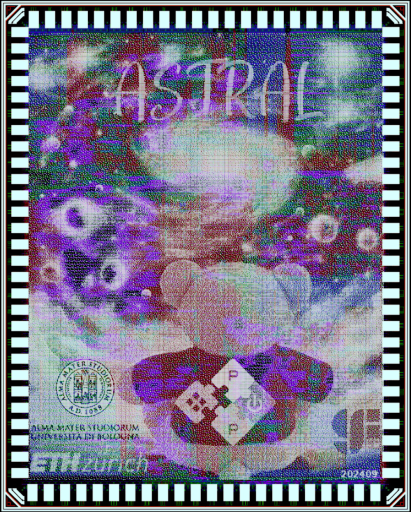ASTRAL (Architecture for Reliable Execution of Safety-Critical Tasks based on RISC-V for Satellite AppLications) is a flexible, high-performance, secure and reliable heterogeneous System-on-Chip based on the PULP open-source platform and targeting targeting space applications.
The Astral SoC features four distinct domains:
- Host: The host domain consists of a dual-core Cheshire processor enhanced with a cache-coherent interface, a runtime-programmable redundancy mechanism for CVA6, and an ECC-extended Last-Level Cache (LLC) utilizing the Single-Error Correction, Double-Error Detection (SECDED) paradigm.
- Accelerator: This domain features an 8-core PULP cluster designed for accelerating DSP and AI workloads. It includes a hybrid redundancy wrapper that allows the cluster cores to be configured for execution in independent, Double, or Triple Modular Redundancy (D/TMR) modes. Additionally, it has an ECC-extended TCDM subsystem with the SECDED paradigm, an ECC-extended memory interconnect capable of on-the-fly correction of single errors and detection of double errors between the memory and the cores/accelerators, and an instruction cache extended with error detection and replacement. The HWPE subsystem features three hardware accelerators: RedMulE, NEureka, and a novel HWPE designed to accelerate the softmax function in transformer networks.
- Secure: The secure domain is a revision of OpenTitan, serving as the Hardware Root-of-Trust for the entire SoC. It handles secure boot procedures and system integrity monitoring. For Astral, we extended it with a lightweight yet powerful internal DMA engine to efficiently move data within the subsystem and serve the internal cryptographic accelerators.
- Peripherals: The peripheral subsystem of Astral includes a comprehensive set of IPs such as SPI, I2C, Serial Link, CAN, system-level timers, and a watchdog, along with a single-phy HyperBus controller. Additionally, Astral is the first platform in the PULP family to integrate a DMA-powered Ethernet controller.
This design has been generously supported by the Globalfoundries University Partnership Program.

